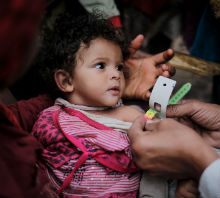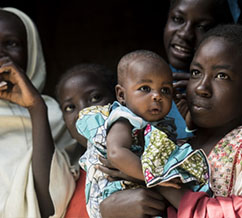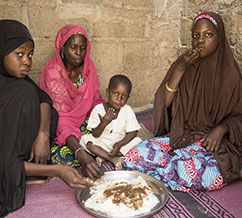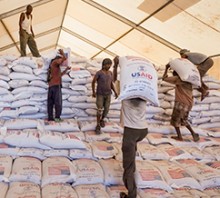Speeches Shim
Today the United States announced an additional $170 million in humanitarian assistance to support the people of the Federal Democratic Republic of Ethiopia, many of whom left their homes because of escalating conflict or natural disaster, and who are facing severe food insecurity as a result. This additional funding brings the total U.S. humanitarian contribution for Ethiopia to more than $802 million since October 2016.
Health actors are responding to suspected cholera cases in northeastern Nigeria’s Borno State, with the State Ministry of Health (SMoH) recording nearly 800 suspected cholera cases and three cholera-related deaths in Kukawa Local Government Area (LGA) from February 13–July 1.
On June 28, the International Committee of the Red Cross (ICRC) distributed emergency food commodities and shelter supplies to vulnerable households in Unity State’s Leer County, marking ICRC’s first delivery of assistance in the county since fighting began in April. ICRC plans to assist a total of 8,000 conflict-affected households in the county in the coming weeks
Military operations and poor living conditions continue to prompt displacement in northeastern Nigeria, primarily in Borno State. From June 6-12, the International Organization for Migration recorded nearly 4,200 new arrivals to locations in Borno, approximately 96 percent of the new arrivals in northeastern Nigeria during that period.
On June 7, U.S. Ambassador to Nigeria W. Stuart Symington announced nearly $112 million in new FY 2018 funding for the humanitarian response in the Lake Chad
Basin, comprising areas of Cameroon, Chad, Niger, and Nigeria. The figure includes more than $62 million from USAID/FFP, nearly $47 million from USAID/OFDA, and
nearly $3 million from State/PRM. With almost $761 million in total humanitarian funding in FY 2017–2018, the United States Government (USG) remains the largest
donor to the humanitarian response in the Lake Chad Basin





Comment
Make a general inquiry or suggest an improvement.